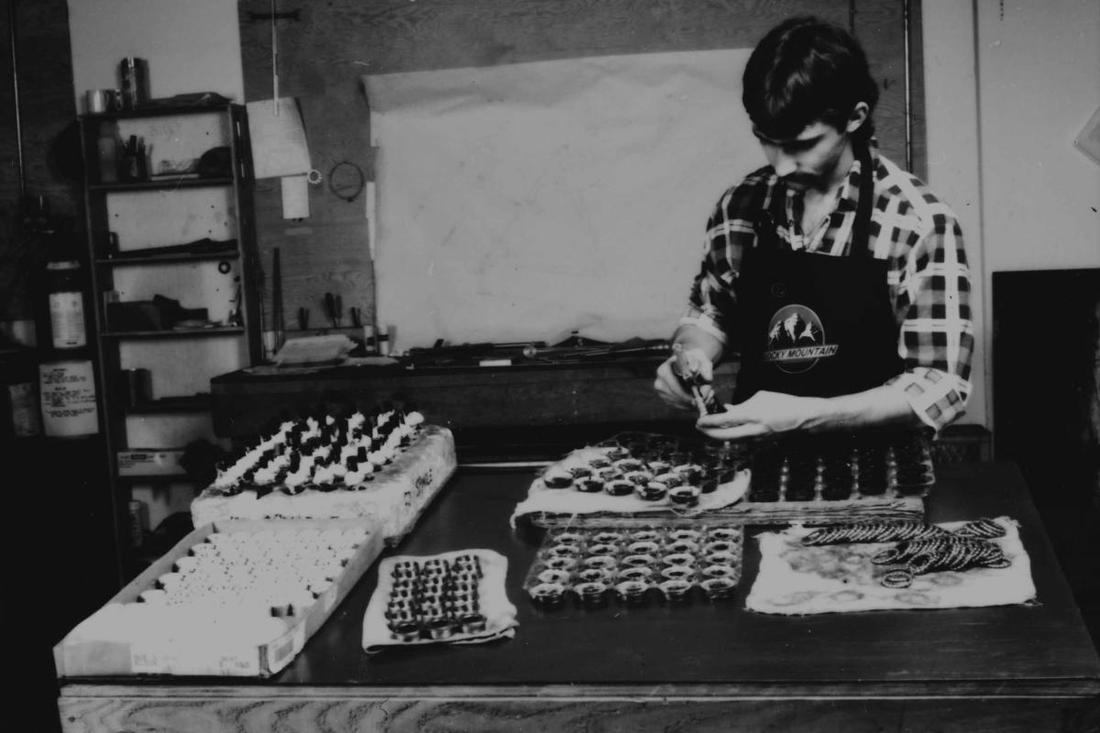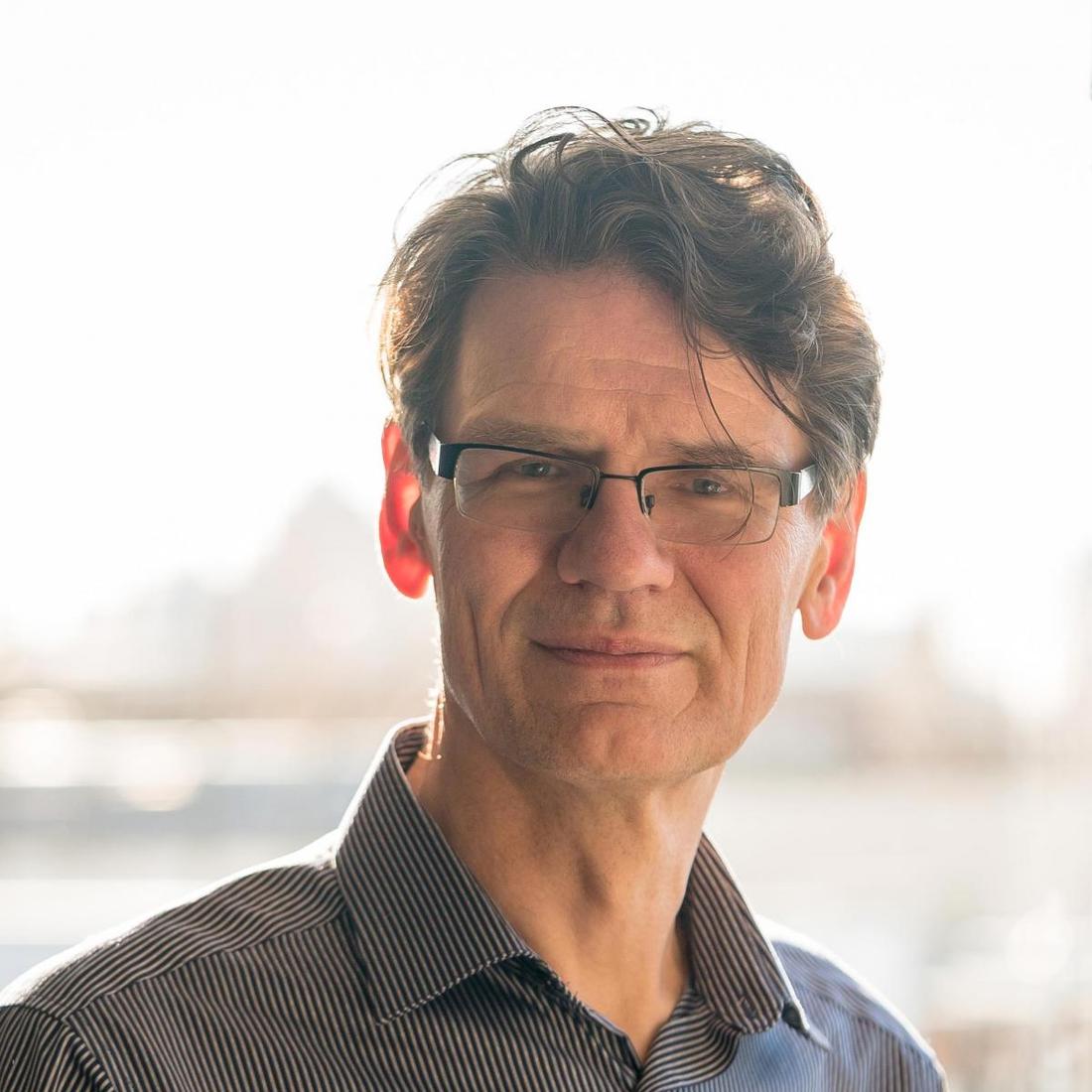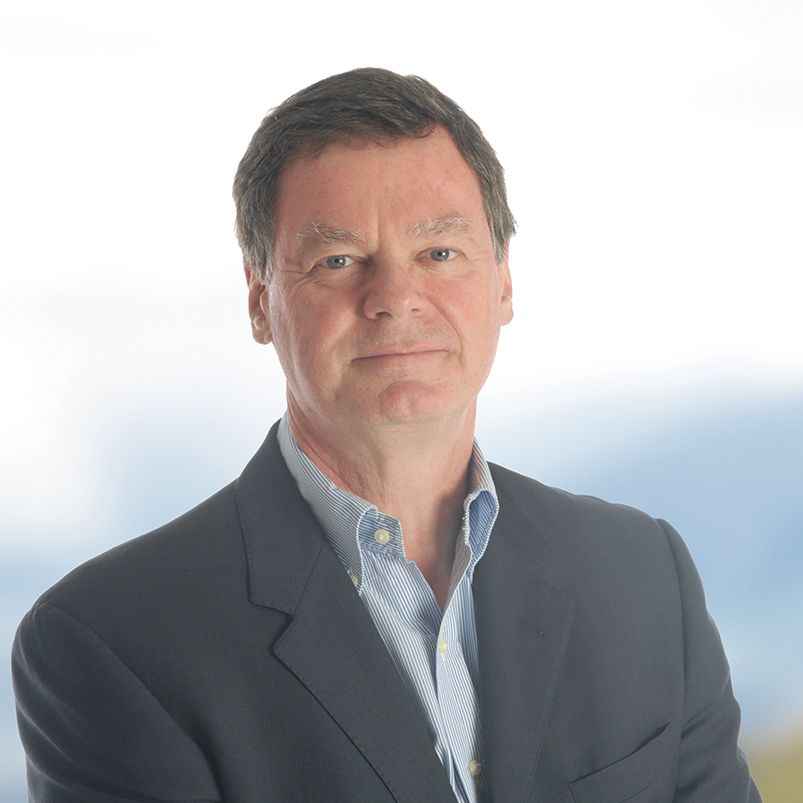
The Rocky Mountain Development Centre is nestled at the foot of the Vancouver's North Shore mountains, home to some of the world's most diverse and rugged terrain. We've been developing high performance mountain bikes here since 1981.
Many things have changed since we first opened our doors, but our product developers, engineers, marketing nerds, salespeople, and athletes are still a tight-knit crew that works and plays in these mountains. From local trail days to backcountry adventures, we're all here for a reason: we love mountain biking.
Through the Years
1978 — The soon-to-be Rocky Mountain founders are working in a Vancouver bike shop, and start modifying Nishiki road bikes with wide tires, straight bars and thumbshifters.
1981 — Rocky Mountain Bicycles Ltd. is incorporated in Vancouver, British Columbia, Canada. The three original founders are Grayson Bain, Jacob Heilbron, and Sam Mak.
1982 — The Rocky Mountain founders accompany Tom Ritchey to Japan to select durable components and tubesets. Later that year, they create Canada’s first homegrown fat tire bike—the Sherpa.
1984 — Sales expand beyond Vancouver and the first sale is made in Eastern Canada. The lineup for the 1985 season includes the Blizzard.
1989 — Rocky Mountain sells its first aluminium production bike, the Stratos, and sells its first bikes internationally, shipping five bikes to BikeAction Germany. More exports would follow: CHRIS Sports Switzerland in 1992, DSB Italy in 1996, A&F Japan in 1997, and Tribe Sport France in 2000.
1992 — Alison Sydor wins Canada’s first World Cup aboard a Rocky Mountain.
1993 — In need of higher quality cranks and other parts, Rocky Mountain starts Race Face Bicycle Components. Bruce Spicer wins Canadian National XC Championships on Rocky Mountain, adding to his record 13 national titles.
1996 — Andreas Hestler beats Henrik Djernis and John Tomac at the Scottsdale Cactus Cup, and represents Canada at the Atlanta Olympics.
1997 — The Froriders are born. Rocky Mountain is acquired by Procycle, but continues to operate independently.
2000 — Element Race named Bike of the Year by Mountain Bike Germany Magazine.
2001 — Wade Simmons wins inaugural Red Bull Rampage in Virgin, Utah. The Slayer is introduced.
2002 — Both Rocky Mountain teams (Karsten Bresser/Karl Platt and Leslie Tomlinsen/Gretchen Reeves) win the Transalp Challenge.
2004 — Marie-Hélène Prémont wins silver at the Athens Olympics aboard a Rocky Mountain Vertex, while Alison Sydor comes in 4th.
2005 — The tagline Love the Ride is introduced. 2008 — Alison Sydor and Pia Sundstedt win the 966 kilometer long Cape Epic, the longest one ever held.
2008 — Marie-Hélène Prémont competes at the Beijing Olympics and wins the World Cup Overall.
2009 — Sabrina Jonnier (DHO) and Geoff Kabush (XCO) both victorious at the muddy Bromont World Cup. Sabrina Jonnier wins World Cup Overall.
2013 — The Altitude is reintroduced as one of the first major 27.5” trail bikes.
2014 — The Rocky Mountain Urge bp Rally Team takes 2nd in the Team Overall at the Enduro World Series. Rocky Mountain Bicycles are exported to 36 countries worldwide.
2015 — Wade Simmons, the Godfather of Freeride, celebrates 20 years with Rocky Mountain. A completely new downhill platform, the Maiden, is introduced for the 2016 season, and wins Decline Magazine’s Downhill Bike of the Year award.
2016 — Rocky Mountain celebrates 35 years of good times on two wheels. The Rocky Mountain Urge bp Rally Team wins the Team Overall at the Enduro World Series.
Founding Fathers
 Part. 1: Grayson Bain
Part. 1: Grayson Bain
“I was in a window seat, jetting west across the mountains of British Columbia. I stared out at the grandeur of sun tinted snowy crags and knew that what separated my adopted home in Edmonton from the native soil of Vancouver was a massive rock formation called the Rocky Mountains. I thought about naming our new company after these peaks.”
Grayson Bain founded Rocky Mountain Bicycles in 1981 with Jacob Heilbron and Sam Mak. They operated out of the West Point Cycles warehouse, distributing Ritchey mountain bikes to a handful of shops across Canada. By 1984, the company had hired Derek Bailey and was brass fillet brazing its own frames at a facility on the Fraser River.
Over the next decade, Rocky Mountain Bicycles established itself and expanded globally. International races were won by racers like Alison Sydor, Andreas Hestler, and Regina Stiefl, and design awards followed. Legendary names worked at Rocky Mountain over the years, like Paul Brodie, Chris Dekerf, Lance Bohlen, Pippin Osborne, Larry Ruble, Duhane Lam, Al Kowalchuk, and even a young kid named Wade Simmons.
At the end of 1997 Grayson Bain sold Rocky Mountain to Quebec-based Procycle.
“It took some time to find the right partner—a Taiwanese company wanted to buy us, but their plan was to just take the name and discard everything else. An American company made an offer as well, and they’d have been willing to keep some employees in the US, but staying in Canada was important to me. Ultimately, Raymond [the owner of Procycle] and I came to an agreement, and our Vancouver team continued to operate independently as a branch of the new Quebec-based ownership.
Watching our little upstart bike company continue on, it’s great to see Rocky Mountain still involved with some of the best riders, designers, and even those original guys like Wade. It shows integrity as a company, not just chasing the flavour-of-the-month.”

Part 2: Raymond Dutil
“It’s always been a small world in the bike industry. I had known Grayson for some time before I considered buying Rocky Mountain Bicycles from him, and had always been impressed by the quality and passion that his young Vancouver company was putting into their bikes. Procycle has a long history of manufacturing bikes in Canada, and I saw in Rocky Mountain an opportunity to add high end, reference mountain bikes to our lineup.”
Established in 1977, Procycle is headquartered in Saint-Georges de Beauce, Quebec, Canada. With early years manufacturing under license for Peugeot, the company has bucked industry trends to move away from mass market towards exclusively IBD-focused offerings.
“Race Face started as a Rocky Mountain house brand, but we decided not to purchase it when we bought Rocky Mountain. I knew that Race Face would have a better opportunity to grow if it remained independent.”
Shortly after Procycle bought Rocky Mountain in 1997, the Rocky Mountain “Froriders” pioneered the idea of freeriding. Guys like Wade Simmons, Brett Tippie, and Richie Schley stopped caring about crossing the finish line first, and started riding previously unrideable terrain in Kamloops and on the North Shore.
“Mike Carroll and Tess Sewell who came up with the concept of the Froriders. Wade, Brett, and Richie were all showmen. They had different personalities from the racer-types of the time. They were there to have fun, create momentum, and be emissaries for our nascent sport.
I don’t think anyone could have anticipated the effect that the concept of “freeride” would have. But the moment that Kranked 1 premiered, we knew. From the reaction it was obvious that there had been a paradigm shift, that things had fundamentally changed.”
Over the last decade or so, Rocky Mountain has continued to carve out a name for itself, creating quality bikes ahead of the industry curve. From freeride to enduro to marathon stage racing, the goal has always been to get more people on better bikes.
“I’m very proud of the progress we’ve made since Procycle took ownership of Rocky Mountain. While manufacturing has largely been moved overseas, we’ve tripled the size of our R&D department, expanded our prototyping capabilities, and still assemble many of our bikes here in Quebec. We’ve always known that the Rocky Mountain development centre needs to be in Vancouver—Grayson’s dream. The place is a mecca of mountain biking, and the team’s commitment is reflected in every bike we make.
We look forward to another 35 years as a leading mountain bike brand. Rocky Mountain may not be the biggest, but we strive to be the best.”
rocky mountain bike demo
